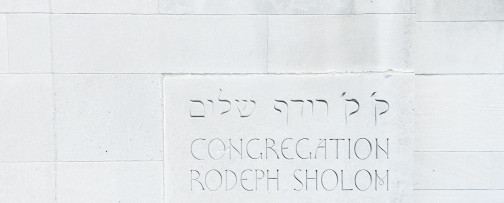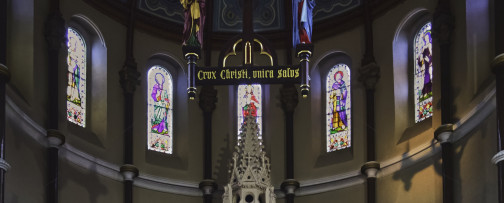Hinduism is the third largest religion in the world, with more than a billion (yes billion with a B!) followers practicing these beliefs. The Hindu faith originates in India and has spread throughout the globe with different denominations, beliefs, and customs for various groups.
Because of its religious origins, Indian funeral practices often align with Hindu funeral rituals, but it is important to note that there are also a large number of Muslims who live in India, along with those who practice other religious beliefs. As these beliefs spread to other locations and communities, modifications and adjustments have created unique preferences for each group and even each family.
Unlike other religions, Hinduism has no common doctrine or creed, and there is no founder. Since there are many branches of religion and cultural traditions, death rituals and traditions vary. Here is an overview of some of the standard practices you might see in Hindu and Indian cultural funeral traditions.
What is a Hindu Funeral?
The Hindu belief focuses on God being within each person, and the purpose of life is to gain awareness of the divine essence. Since the faith centers on reincarnation, Hindu funeral rituals help each person through this transition.
These forms of Hindu worship and rituals lead the soul toward the experience of Self or God. The soul has no beginning or end, which means that the funeral is a ceremony to help the soul pass through to reincarnation.
What Happens at a Hindu Funeral?
Common ceremonies and practices for a Hindu funeral include three parts:
- A funeral or visitation, which occurs in the family home immediately after a person passes away.
- The cremation ceremony usually happens within the first 24 – 48 hours.
- A shraddha ceremony, to pay homage to the person’s ancestors, often taking place about 10 days after death.
Typically, the funeral takes place in the family home. By Western standards, this event is similar to a wake because it is a small gathering and short length.
The Importance of the River Ganges in Hindu Funerals
Why is the River Ganges important in Hindu funerals? The traditional location for Hindu cremations is on the banks of the Ganges River in India. The family carries the body to the cremation site on the river banks for the final ceremonies, and they believe that this location is key to allowing their loved one to leave the cycle of birth and death in the attainment of nirvana, or enlightenment.
Hindu families who are not in India may choose local cremation services, with funeral directors offering support for the rituals and traditions of Hindu cremation.
Hindu Death Rituals
A variety of Hindu and Indian death rituals honor the deceased and support the reincarnation process. The family gathers to practice various rituals, such as:
- Washing: The washing of the body includes special ingredients, such as milk, honey, ghee, and yogurt.
- Essential Oils: The person’s head may be anointed with essential oils: sandalwood for men and turmeric for women.
- Dressing: Traditional Indian death rituals include a simple white sheet to dress the person who has died. More modern practices allow for contemporary, stylish clothing.
- Flowers and Rice: Funeral attendees may place a garland of flowers and rice balls (known as pinda) around the loved ones. Leaves, such as basil, may also be used to adorn the body.
- Lamp: Some traditional practices involve placing a lamp near the head of the person who has died.
- Water: Sprinkling water on the body is a symbol of cleansing.
Hindu Funeral Rituals and Customs
What happens at a Hindu funeral? Hindu burial practices begin at the time of death – which preferably occurs at home. The tradition is for the body to remain in the family home until cremation.
- Hindu Cremation: Ideally, cremation takes place as soon as possible – within 24 hours after death. Friends and family come to the home to offer their sympathy and condolences while the family mourns. Because cremation occurs so quickly, families don’t consider embalming a necessary or desired practice.
- Processing into the Crematorium: While carrying the body into the crematorium, it’s important to bring the body in feet-first. Mourners recite prayers during this time to honor the deceased.
- Conducting the Ceremony: Family members and a Hindu priest conduct mukhagni (the Hindu cremation ceremony).
- Short Ceremony: Most Hindu funeral services last 30 minutes or fewer. The family can choose to hold a longer funeral if desired.
- Scattering the Ashes: According to Hindu funeral rites and rituals, the scattering of cremated ashes takes place. The family chooses a sacred body of water (such as the Ganges River in India), or an alternative place of importance, for the scattering.
- Mourning Period: The traditional Hindu mourning period lasts for 10 days after death. During this time, the family is considered spiritually impure, so they refrain from visiting sacred places (such as temples and the family shrine).
Certain funeral rituals continue through the Hindu mourning period, which ranges between 10 and 30 days. When a family is in mourning, they display a photo of the loved one in their home, with a garland of flowers adorning the photo frame.
Preta-karma is a ceremony that often happens on the 13th day of mourning. The family performs rituals to release the soul to support reincarnation.
One year later, Hindu death rituals also have significance. The family usually hosts a memorial to honor the life of their loved one at the one-year mark.
Hindu Funeral Etiquette
Because of the variations in Hindu beliefs and practices worldwide, each family has unique requests for attendees. These are some of the most common etiquette details you might need to know:
- What to Wear to a Hindu Funeral? One thing that makes Hindu funerals notably different from other religions is that it is sometimes considered inappropriate to wear black. Hindu funeral etiquette may require attendees to dress in conservative, white clothing that covers the knees and arms. But in more modern settings, you may find attendees wearing traditional or more modern clothing. If you aren’t sure, reach out to whoever is coordinating the service for guidance.
- Should You Bring Hindu Funeral Flowers? Don’t bring gifts or flowers to the funeral services. Some services will include flowers or petals, depending on the tradition and the family’s wishes. But you shouldn’t order or bring flowers to the services without specific instructions to do so.
- Who Attends a Hindu Funeral? This will depend on the tradition, and the circumstances. If you’re not sure, reach out to whoever is coordinating the services for more information.
As with other religions, Hindu funeral rites and traditions vary to match the needs and preferences of each individual religious sect and each family.
Recommended Products
- Wooden Comfort Holding Cross — A hand-carved comfort cross to hold during difficult moments
- Solar Cross Grave Decoration — A solar-powered cross for grave decoration that lights up at night
- Forever in My Heart Cremation Necklace — Heart-shaped cremation urn necklace inscribed with "Forever in My Heart."


-banner.png)





